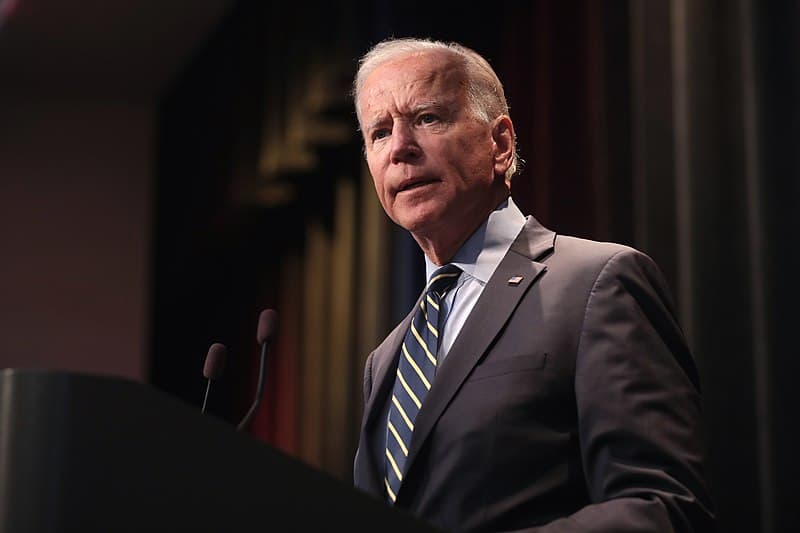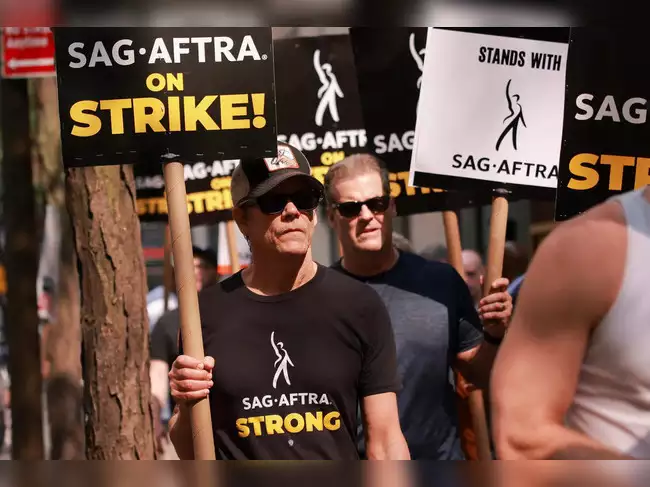
Maddie Chang is a student at Harvard Law School.
In today’s Tech@Work, Biden’s new executive order on AI addresses AI’s impact on work and workers; and SAG-AFTRA agreement requires studios to meet twice a year with the union to discuss AI.
At the end of last month, President Biden issued an Executive Order on Safe, Secure, and Trustworthy Artificial Intelligence (“the EO”) – a landmark moment for the regulation of AI across sectors. In Section 6 of the Order, Biden directs the Secretary of Labor to produce a report in consultation with workers and unions that covers three elements of “Tech@Work”: 1) the impact of AI on job displacement; 2) how AI will affect the quality of work and labor and health and safety standards; and 3) how AI is used at work to monitor workers and make decisions that affect workers. The EO calls on the Secretary of Labor to produce principles, best practice, and guidance that address these three domains, and to work with other agencies to implement them. Perhaps more notable than the actual content of the sections pertaining to work is the prominence of work and workers’ interests in a policy document that might otherwise focus only on the defense related, economic, and civil rights elements of AI. The press release accompanying the EO features comments first from Congress and industry, followed immediately by unions and labor leaders, which are then followed by other civil society voices. While somewhat symbolic, this ordering of stakeholders in combination with the worker-oriented substance of the executive order may signal an important path to influencing AI regulation more broadly, and on the flip side, a path for influencing work law more broadly.
As Marina has covered in more depth in a separate post, the 118-day SAG-AFTRA strike has come to a close, with contract terms that include first-of-their kind provisions on the use of AI. While final contract language is not yet public, the 18-page summary version outlines the terms and has the AI provisions featured on page one. Yesterday in a SAG-AFTRA Instagram live, the union’s Executive Director and chief negotiator Duncan Crabtree-Ireland answered key questions about the union’s approach to AI, starting with why AI is not outright banned in the contract. He noted that the union does not have the power (nor desire necessarily) to fully ban AI in the industry, but wanted to use its leverage to limit the use of AI and ensure that it’s used in a way that respects members, building on histories where unions have shaped the use of tech at work. To that end, one of the key contract terms requires studios to meet twice per year with the union to re-discuss the evolving uses of generative AI.










Daily News & Commentary
Start your day with our roundup of the latest labor developments. See all
March 3
In today’s news and commentary, Texas dismantles their contracting program for minorities, NextEra settles an ERISA lawsuit, and Chipotle beats an age discrimination suit. Texas Acting Comptroller Kelly Hancock is being sued in state court for allegedly unlawfully dismantling the Historically Underutilized Business (HUB) program, a 1990s initiative signed by former Governor George W. Bush […]
March 2
Block lays off over 4,000 workers; H-1B fee data is revealed.
March 1
The NLRB officially rescinds the Biden-era standard for determining joint-employer status; the DOL proposes a rule that would rescind the Biden-era standard for determining independent contractor status; and Walmart pays $100 million for deceiving delivery drivers regarding wages and tips.
February 27
The Ninth Circuit allows Trump to dismantle certain government unions based on national security concerns; and the DOL set to focus enforcement on firms with “outsized market power.”
February 26
Workplace AI regulations proposed in Michigan; en banc D.C. Circuit hears oral argument in CFPB case; white police officers sue Philadelphia over DEI policy.
February 25
OSHA workplace inspections significantly drop in 2025; the Court denies a petition for certiorari to review a Minnesota law banning mandatory anti-union meetings at work; and the Court declines two petitions to determine whether Air Force service members should receive backpay as a result of religious challenges to the now-revoked COVID-19 vaccine mandate.